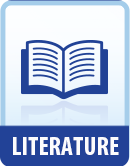|
This section contains 571 words (approx. 2 pages at 400 words per page) |

|
"Elegy for My Father, Who Is Not Dead" is written in free verse. Instead of adhering to an overtly formal pattern of meter or rhyme, it follows the path of the human voice. Hudgins's poems in general are quite conversational in tone and simple in word choice. He frequently includes snatches of overheard dialogue in his poems, capturing the raw, sometimes raunchy language of those around him. While "Elegy" contains no such dialogue, it does witness and interpret in contemporary language the almost childlike conception of eternity his father holds: "he talks about the world beyond this world / as though his reservations / have been made."
This poem, like many others in The Never-Ending and his other volumes, consists of one long stanza and medium-length enjambed lines, lines that run on from one line into the next without punctuation or formal capitalization. Take lines 7-9, for example: "a new...
|
This section contains 571 words (approx. 2 pages at 400 words per page) |

|




